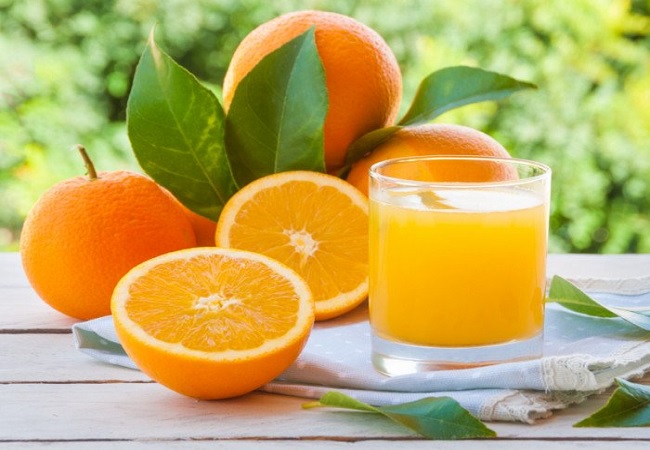Hypertension is a critical health issue that notably increases the chances of heart-related and various other ailments. It is called a “silent killer” because it often has no warning signs or symptoms, and many people do not know that they have hypertension.
According to a 2019 survey, around 1.4 billion individuals worldwide suffer from high blood pressure, yet a mere 14 percent have managed to maintain it at a safe level.
An individual is considered to have hypertension when his blood pressure levels are greater than or equal to 140 mmHg and his diastolic blood pressure is above 90 mmHg. For blood pressure to be classified as optimal, systolic and diastolic blood pressure should be less than 120 mmHg and 80 mmHg, respectively.
Many patients prefer herbal remedies to conventional medications. At the same time, the use of natural ingredients can play a good complementary role in controlling and modulating blood pressure and increasing the comfort of hypertensive patients.
However, the treatment of hypertension is done through conventional medicines and medicinal plants, and their association is increasingly frequent and thus also increases the risk of interactions.
In a new study, researchers caution against patients using their medicines for hypertension together with medicinal plants without the guidance of a professional because this can bring harm to health and decrease the effect of the drug on the body.
The 2022 review in Research, Society and Development listed these plants to include Allium sativum L. (garlic), Passiflora sp. (passionflower), Cymbopogon citratus (lemongrass), Lippia alba (bushy matgrass), Citrus sp. (citrus fruits), Sechium edule (chayote), and Alpinia zerumbet (shell ginger).
It was on the implications of the use of medicinal plants and their interaction with drugs used to control hypertension, based on works published between 2014 and 2022.
Read Also: Orange peels, orange juice improve heart health — Research
According to them, these medical plants alter blood pressure by interacting with antihypertensive medications and necessitate caution when taking them alongside conventional medications.
They also emphasised the importance of consulting healthcare professionals before combining medicinal plants with antihypertensive drugs to avoid potential hypotension or exacerbation of side effects from medications.
Currently, millions of people are using medicinal plants together with prescription drugs for therapeutic purposes or formulated as herbal medicines to prevent diseases. Despite being considered natural, these may interact with other medicines and/or foods, causing potentially dangerous side effects or reducing benefits obtained with conventional treatment.
Plants produce a wide variety of chemicals that may have different biological activities, even though these chemical substances have therapeutic effects that are highly patronised by a significant part of the world population that does not have access to conventional medicines.
Interactions between plants and medications can lead to pharmacological changes and drug toxicity. These interactions can be of the type when there is an increase or decrease in the effect of the drug, due to synergy or antagonism, or even changes in the absorption and distribution of the drug in the body, resulting in increased blood concentration.
In the review performed, 70 eligible articles were found, among which 22 articles met the inclusion criteria. The others were disregarded because, despite appearing in the research bases, they did not address what medicinal plants could cause changes in blood pressure and the interaction with antihypertensive drugs.
The review stated the part of the medicinal plant, its effects, and its interaction with different types of hypertension drugs.
Garlic known for its blood pressure-lowering effects, may enhance the effects of antihypertensive medications, leading to hypotension if used together. The sulphur compounds present in garlic are causing an increase in the effect of the hypertension drug.
Orange juice is shown to decrease the absorption of some antihypertensive drugs, such as β-blockers, potentially leading to reduced therapeutic effects.
Passionflower may interact with sedatives and antihypertensive drugs, potentially increasing their effects. Compounds in citrus can affect the metabolism of certain antihypertensives, altering their effectiveness.
The oil present in lemongrass similarly causes hypotension to some hypertension drugs, causing an additive interaction when used together with the amlodipine drug. Amlodipine is one of the most common and easily accessible drugs for the treatment of hypertension in Nigeria.
However, consistently, studies have proven that these medicinal plants lower blood pressure. Epidemiological studies have shown that incorporating citrus fruits into the daily diet could potentially improve blood pressure.
Several reports have demonstrated a relationship between lemon juice and blood pressure. Among Turkish patients with hypertension using alternative therapies, 40% drank lemon juice to ameliorate their higher blood pressure.
In addition, a significant negative correlation was observed between lemon consumption and systolic blood pressure (SBP) in healthy Japanese women.

